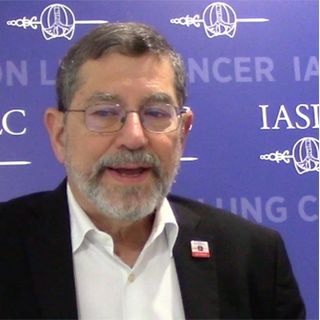
Lung Cancer
Latest News

Olanzapine May Prevent Nausea and Vomiting During Moderately Emetogenic Chemotherapy
Latest Videos

CME Content
More News

Crofelemer missed the diarrhea endpoint in a study assessing prophylaxis in adult patients with solid tumors receiving targeted therapy.

Based on in vitro studies, this tetravalent bispecific antibody may show binding affinity to PD1 and VEGF.

Oncology nurses can utilize risk assessment to predict patients at increased risk for cisplatin-induced acute kidney injury.

Follow-up with cholesterol control and audiological assessments is suggested for cisplatin-treated patients with cancer.

The failure to improve PFS and OS with tiragolumab plus atezolizumab and chemo in metastatic nonsquamous NSCLC indicates missing the primary end points of the SKYSCRAPER-06 trial.

Oncology nurses can provide patient and provider education about the benefits of stepped palliative care.

An sBLA was granted priority review from the FDA, which is seeking the approval of pembrolizumab plus chemotherapy for the frontline treatment of malignant pleural mesothelioma.

For oncology nurses, it is important to advocate for patients and families through ongoing assessments for caregiver burden, financial toxicity, and effective communication that lead to poor decision-making.

The biologics license application for subcutaneous amivantamab is seeking approval for the treatment of EGFR-positive non-small cell lung cancer.

The FDA granted accelerated approval to repotrectinib to treat adult and pediatric patients with NTRK gene fusion-positive solid tumors.

The priority review granted by the FDA to the supplemental new drug application for osimertinib is seeking approval for its treatment of stage III non-small cell lung cancer with EGFR mutations.

Adagrasib, compared with standard-of-care chemotherapy, significantly improved tumor responses and progression-free survival in patients with KRASG12C-mutated locally advanced or metastatic NSCLC.

Patients with advanced non-small cell lung cancer who received palliative care via telehealth had similar improvements in quality of life as those who received the care through in-person visits.

The survival benefit obtained from consolidation treatment with durvalumab after concurrent chemoradiation may change the standard of care for limited-stage small cell lung cancer.

Compared with placebo, osimertinib after definitive chemoradiotherapy improved progression-free survival in locally advanced, EGFR-mutated non–small cell lung cancer.

Patients with refractory EGFR-mutated, advanced non-small lung cancer had improved responses with low rates of adverse effects with subcutaneous amivantamab vs its intravenous formulation.

Frontline amivantamab plus lazertinib outperformed osimertinib regarding progression-free survival in patients with high-risk EGFR-mutant non-small cell lung cancer.

Lorlatinib, compared with crizotinib, prolonged PFS and improved time to intracranial progression in ALK-positive non–small cell lung cancer.

Selpercatinib was granted accelerated approval from the FDA for patients aged 2 years and older with thyroid cancer or solid tumors with RET mutations.

Oncology nurses can discuss dose modifications for common smoking cessation agents with patients and providers to improve smoking cessation rates.

The BLA for zenocutuzumab to treat NRG1-positive non–small cell lung cancer and pancreatic cancer received priority review from the FDA.

Tarlatamab, a bispecific T-cell engager, was approved by the FDA for adults with extensive-stage small cell lung cancer.

Tolerable anti-tumor activity was demonstrated in patients with HER2-overexpressing non–small cell lung cancer who were treated with trastuzumab deruxtecan at 2 dose levels.

Glecirasib resulted in durable responses with a manageable safety profile for pretreated advanced non-small cell lung cancer with KRAS G12C mutations.

Durvalumab monotherapy as consolidation therapy in limited-stage small cell lung cancer produced a clinical benefit in patients from the phase 3 ADRIATIC trial.



























































































